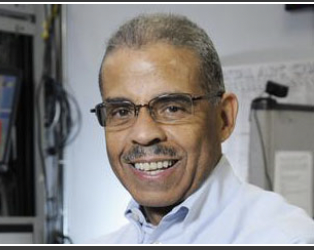The current media landscape is driven by names like Elon Musk, Rupert Murdoch, and Mark Zuckerberg – all White men.
It has long been time to change that and increase minority media ownership. Unfortunately, an acquisition currently under review before the Federal Communications Commission (FCC) that would do just that — and in a major way — is being held up by disingenuous actors using racial undertones that are sending the wrong signal to would-be minority media investors.
Standard General is led by Soo Kim, a naturalized U.S. citizen born in Korea. Standard General is proposing to buy TEGNA, which owns more than 60 TV stations, in a deal that would be the largest such purchase by a minority ever.
The acquisition is meeting an escalating amount of opposition, which is common for deals of this kind. However, what is out of the ordinary is the unprecedented manner in which the FCC continues to delay the deal by extending its review process by granting opposition requests for additional information based on disproven and irrelevant claims. All that despite Kim’s long-standing record of buying and operating successful television stations.

There have been similar media purchasing deals, but they have not received similar treatment. Is it any wonder so many people question why a minority purchaser often seems to be treated differently than a White counterpart?
I am speaking out because I have already seen this movie too many times — and the sequels, too. Throughout my career, I have worked in the development of minority ownership while in positions at the White House and the FCC. I have decades of media entrepreneurial experience dealing with media transactions of all sizes. As the founder and CEO of the largest Asian-language television network in America, Crossings TV, I understand this industry and know there is a big difference between talking about diversity, equity, and inclusion, and actually doing something to advance these values.
The FCC’s role is to review if the transaction supports the public interest. Fostering diverse programming and content is in the public interest. Expanding media ownership by ethnic and racial minorities of media outlets is in the public interest, too. It is now a key element of this review.
I was involved in establishing this policy by creating the Minority Tax Certificate, which, while it existed, increased minority ownership by orders of magnitude. Unfortunately, the Tax Certificate was eliminated from the tax code in 1995 by a newly-elected Republican Congress which abolished it specifically to nullify my attempted $2 billion acquisition of Viacom’s then-cable group. Had I succeeded, Frank Washington would be a household name in the media — and a minority one at that.
Instead, I was left to wonder if that was what the Republicans in 1995 wanted to prevent.
No policies in subsequent years have come close to what the Minority Tax Certificate did in bringing minority voices to the media business. In light of that, Kim’s opportunity to expand diversity through the TEGNA deal is even more remarkable. As an immigrant from a country that at times has been less than democratic, he cherishes America and the freedoms it offers. Based on his history and that of the woman CEO with whom he has worked — and will continue to work with– under the new TEGNA, he takes diversity very seriously both at the program and employment levels.
While I am an acquaintance of Kim, my primary motivation for speaking out is my devotion to the concept of minority ownership. It is absolutely critical to our country’s governance, and political and economic infrastructure.
Ironically, the opposition to the TEGNA acquisition (unlike my Viacom deal) is coming from Democratic-oriented interest groups whose strategy seems to be delay, delay, and delay. And since the Democrat-run FCC is understandably inclined to have this constituency’s concerns heard, it continues to allow delay in this proceeding. In fact, it is now in its ninth month — a record for comparable transactions.
This matters because transactions are ephemeral. Many things can go wrong, including the financing, unexpected events, economic changes, or — as in the Viacom cable case — political changes. If timing isn’t everything, it certainly can have outcome-determinative consequences.
Finally, in my role as CEO of an Asian-language television channel, I have been a firsthand witness to the discrimination, stereotypes, and abusive behaviors exhibited toward the Asian-American community. With that reality in mind, I am troubled that some of the petitioners have urged that the FCC invoke the Committee on Foreign Investment in the United States (CFIUS) law in this transaction. CFIUS applies in instances where foreign nationals attempt to buy or otherwise control U.S.-based companies at risk to our national security.
Let me be clear: Kim is an American citizen. Like so many of his fellow Asian-American business leaders, some born abroad and others here at home, he loves this country and is committed to our laws and our way of life. He isn’t just doing business in America. He is choosing America to be the home of his business.
It is time for the fishing expedition to end. If expanding minority ownership is something the FCC truly values, then Standard General’s acquisition of TEGNA must be had forthwith.


